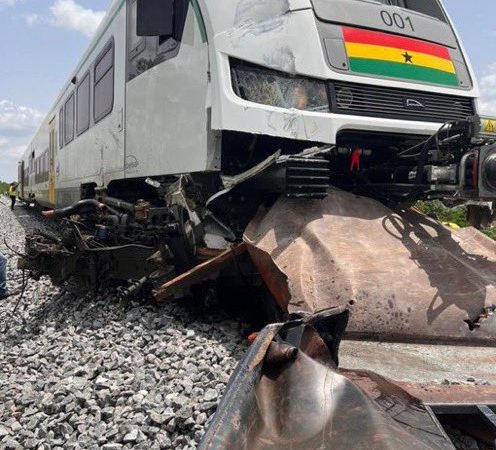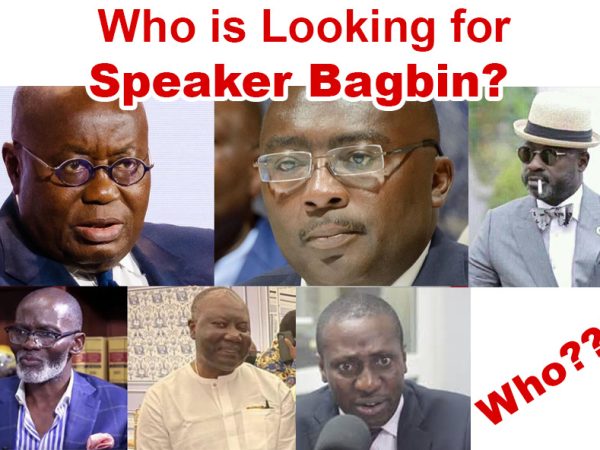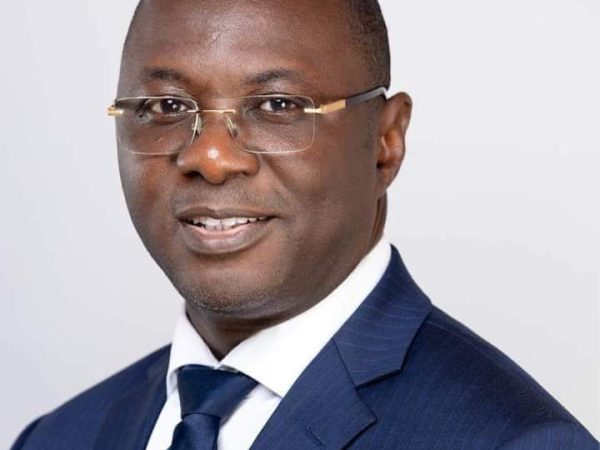OVER 50 African CSOs in Accra for Sensitisation of AU’s Free Movement Protocol
A Three-day sensitisation forum for Civil Society Organizations (CSOs) and Higher Institutions to popularize and promote the Free Movement Protocol to the Treaty Establishing African Economic Community Relating to the Free Movement of Persons, Right of Residence and Right of Establishment in Africa has opened in Accra, Ghana.
The Regional CSO Sensitization Forum led by the Africa Union’s Economic, Social and Cultural Council (ECOSOCC), in partnership with GIZ on the Free Movement Protocol (FMP) commenced on Tuesday, May 17 to 19, 2022.
Free Movement of Persons is an integral part of Agenda 2063 and the Abuja treaty of 1991 establishing the African Economic Community. Free Movement and African Passport is one of the 14 flagship projects of Agenda 2063. Executive Council Decision of January 2016 in Mekele, further affirms the commitment to the free movement of persons and goods. The decision also reinforces the Assembly Decision of June 2015.
These migration policy frameworks including the Migration Policy Framework for Africa (MPFA) and Plan of Action (2018-2030), and the AU Free Movement Protocol (FMP), is meant to address, manage and promote migration and mobility as a result of intra-and inter-regional, continental and global migrant flows within and out of Africa, have not yet made the desired impact.

The forum is part of efforts toward greater popularization of the protocol within the African Civil Society and defining the role of African CSOs in the publicity of the free movement protocol and their contribution to its implementation.
The ECOSOC was established in July 2004 as an Advisory Organ, comprising different social and professional groups of AU Member States to provide an opportunity for Africa CSOs to play an active role in contributing to the AU’s principles, policies and programmes.
As part of the objectives, the FMP focused on reducing and ultimately eliminating barriers to crossing regional borders for various purposes, including trade, work, visits, and establishment of businesses in the Member States. Notwithstanding the existence of the various policy frameworks, much remains to be done by African Civil Society Organizations (CSOs) regarding their publicity or popularization.
Speaking on behalf of the ECOSOCC Head of Secretariat at the forum, Mr. William Carew called on the CSOs to use their unique placement as non-state actors to domesticate, popularize and promote the implementation of the continental and regional migration policies on the continent.
According to him, the issue of cross-border travel is strategic to achieving the AU’s Agenda 2063’s flagship projects which identify Free Movement on the continent as key to accelerating Africa’s economic growth and development.

He, therefore, urged the CSOs to use their influence to exert some pressure on member countries to take the needed action.
“Where Member States of the AU Commission may be dragging their feet, I call upon members of the civil society whom I like to recognize as an unofficial fourth arm of government on the continent, to take a leading role in pushing parent Member States in prioritizing Labour Migration and Free Movement issues,” he said.
Meanwhile, Ghana’s Deputy Minister for Foreign Affairs and Regional Integration, Kwaku Ampratwum-Sarpong, who opened the three-day forum expressed concern about the fact that out of about the thirty (30) countries that have signed the Free Movement Protocol, only five have ratified it, despite the importance of the protocol to the realization of Africa’s development blueprint to achieving inclusive and sustainable socio-economic development captured in Agenda 2063.
“Nonetheless, I call on CSOs to remain committed to popularisin and implementing the Protocol, which you would all agree with me, is very critical to the promotion of integration, pan-Africanism, education, research, the facilitation of intra-African trade and investment and improvement in the standards of living of the people of Africa for Africa’s development,” also urged the CSOs.

However, the Director in charge of the Free Movement Protocol (FMP) at the ECOWAS Commission, Mr. Albert Siaw-Boateng, in a speech assured that ECOWAS was determined to go beyond the borders to achieve the vision of the region which is hinged on transitioning from ECOWAS of States to ECOWAS of people.
He identified needless road blocks and harassment of community citizens at the common borders; poor knowledge among community citizens and the operatives (immigration, police, gendarmeries, customs, etc) about the provisions of the Protocol on Free Movement and its related supplementary acts, especially the rights and obligations of community citizens as some of the yawning challenges to the implementation.
He confirmed that indeed only five countries in the sub-region have so far implemented the ECOWAS National Biometric Identity Card for intra-regional mobility and the removal of a residence permit requirement for citizens in the territories of Member States.
“This is an important document that will increase mobility on the ECOWAS space. Unfortunately, far too few Member States have implemented the NBIC.
ECOWAS’ leadership is absolutely essential to assist the Member States to that effect in order to ensure that the travel document meets the standard as prescribed by Decision A/DEC.01/12/14,” Mr. Albert Boateng added.
The card will make it possible for the populations of Member States to move around the ECOWAS area, serving as a residency permit, or a passport at the airports, but also as proof of identity for the bearers.
In addition to the aims, the card is required to fulfill, each country may, at its own convenience, list other data on the card, such as blood type, driving license, the subject’s health condition or other applications relative to the card holder.
The aim of the forum was to popularize the Free Movement Protocol (FMP) and Migration Policy Framework for Africa (MPFA) within African civil society. The forum specifically aims to improve Civil Society Organizations’ (CSOs) understanding of the FMP in order to increase their participation and strengthen their capacity in implementing the protocol.

Background
Increased mass migration and displacement within the African continent has spurred several policy frameworks to address and manage it. The African Union in particular has established two key policy frameworks to address, manage, and promote migration and mobility within the continent: the FMP and MPFA.
The FMP, in particular, aims to curb and eventually eliminate barriers to regional border migration (to work, visit, trade, live, etc.) within the continent. Eliminating those barriers translates to economic growth on the continent as well as improved migration procedures for African citizens
Source: expressnewsghana.com
Send your news articles to expressnewsgh@gmail.com or via WhatsApp 0543900732








